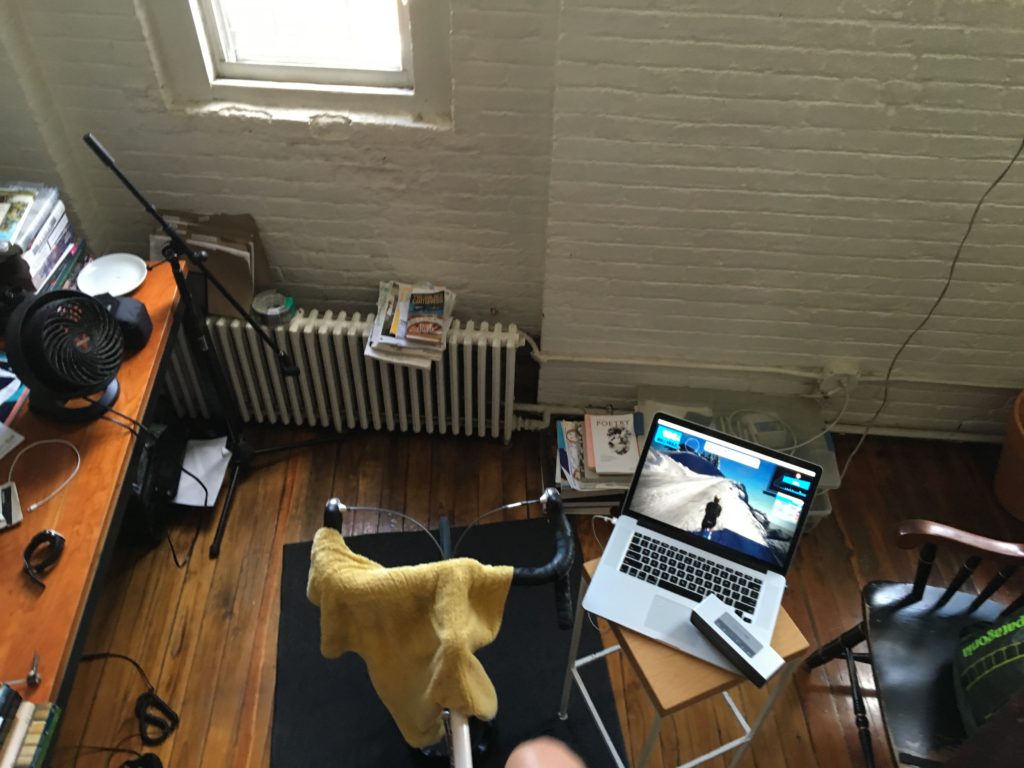The notion that you can sweat out a cold, that you can purify your body through effort and that the water that beads on your skin and pours in rivulets to the floor is carrying with it the remnants of the virus or the contagion that made you feel bad–it’s so compelling an idea that it’s hard to let go of it. Science says no, all you are doing is sweating, and what’s more you are diverting energy your body needs to fight disease. You will likely get more sick rather than less from it.
It feels so right, though, that it makes me wonder about modes of knowing, makes me think about how science can only describe and say so much. Surely the body has its own wisdom and instructs us in ways that we can’t quantify or rationalize.
I used to justify smoking when I was sick by imagining the hot smoke purifying my lungs, making an autoclave in my ribs, burning out the disease. That too felt right and true in my body. But since then, I’ve refrained from smoking and have even developed a habit of using a Disposable Particulate Filtering Respirator Mask.
So maybe it’s not a battle between the body’s wisdom and rational knowledge, but between pleasure and…what. The sweat of a sick body prickles the skin like sleep does, makes the sick body–which is so within itself, so cut off from the world by its misery—feel a kind of pleasure that’s almost like reanimation. A feeling of aliveness in that sweat, at that boundary between body and air, vital and desirable and pleasurable.
Of course there is also this: a mind in a diseased body is a mind in disorder. And sweat, effort, exertion help restore order. The body works and the mind settles into its traces.
I think all the time of a thoroughbred I saw early one morning on a practice track in Saratoga. The horse could not walk straight. It pulled and strained against its bridle. It pranced sideways and threw its head. But the minute it began to run, it was as beautiful and measured an animal as I’ve ever seen. Maybe it’s that the way illness disorders the mind is more uncomfortable than the illness itself, and so we rationally choose to exercise. If it prolongs our illness, it also brings us back to ourselves, even if only briefly.
When I think like this I wonder: what will I do when my body no longer works?
